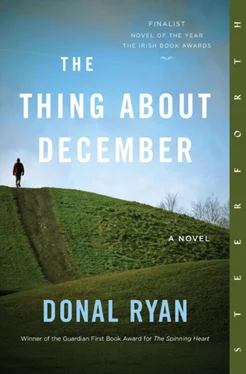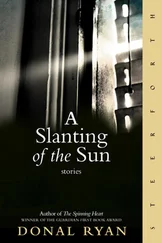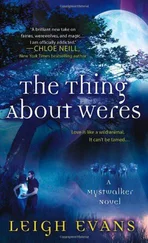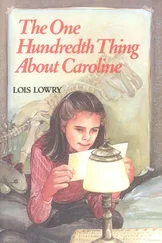THE NEXT DAY came wild and windy. A breeze that would skin you made short work of the softness that had been in it the last few days as it whipped around the high walls of the front gate, doing its level best to push him back inside. Nobody had told this wind Hey calm down, it’s nearly summer. It battled him the whole way to the village and then, just as he reached the old pump, the heavens opened and an almighty shower of icy rain landed on him. He had the jacket without a hood, of course. And you couldn’t be seen with an umbrel unless you were a woman or very old. If he bowled up the street holding an umbrel it would surely be grabbed off of him and he’d be tormented for being a queer.
Packie thought it was great sport that he landed in frozen and drowned wet. He laughed and shook his head as much as to say you could expect no more from a fat eejit only to be caught out in the shower and told him go stand in front of the Dimplex. The Dimplex was no great shakes in the drying-off department: the co-op was like a huge damp cave and the Dimplex was old and tired and probably as sick of Packie giving out about it as Johnsey was. Before the warm air had even settled on his sodden legs, Packie got sick of his own charity and Johnsey was sent packing to the yard. He threw a poncho at him at least. Johnsey slipped it over his head and its plasticky skin made him feel colder again.
Packie wanted space cleared abroad in the yard for a big delivery. It was a full day’s work if not two days’ were you to do a right clean job. Some places had forklifts; Packie’s co-op had a big donkey called Johnsey Cunliffe. The delivery would be arriving at four, so tough — four was the deadline for a cleared yard. There were rakes of pallets to be moved one by one to the side wall; there were bags and bags of feed under a huge canvas to be uncovered and brought inside and space to be made for them; there were racks of shovels and forks and garden implements that Packie had bought long ago in some quare figary he had gotten thinking people would travel out from town to buy gardening tools in a small country co-op. Packie thought he’d be the height of fashion. Even Johnsey could clearly see that Packie Collins would never again be the height of fashion. Maybe he was a big draw one time, when your family having the co-op meant you were a fierce big deal.
The great delivery came a half an hour late. Lucky thing too, as the clearing was only barely finished when the lorry rumbled up the road and squeaked and puffed to a stop outside the gates of the yard. Packie was like an old biddy at a jumble sale; flapping around and trying to act like he didn’t give a damn what was coming, but you could see the redness creeping up his neck and his eyes bulging out of his cranky old head a bit farther than usual. The lorry was full of timber, two-by-four and four-by-four and what have you in long, clean planks.
The next day, just before lunch, two huge blue skips were dropped from two lorries that had great swinging arms and chains for the job of picking things up and leaving them back down. These skips were to be filled with the wooden racks that Packie had once stocked with plants and flowers in the days of high fashion and with all the other unused, unwanted, out-of-date and broken things that lived in Packie’s yard. Johnsey half expected to be told to climb in himself, such was the mercilessness of Packie’s purge. Packie even took an axe to the racks himself but his glasses fell off after the first few swings and he cursed and spat and soon rolled the sleeves of his smock coat down and retreated back inside behind his counter.
The next delivery to come was of concrete blocks. They were deposited in the yard by a ferrety-looking fella who had a forklift that had been stuck to the back of his lorry. He moved quickly and placed pallets of blocks side by side along the back wall with vicious exactness. He made Johnsey nervous. Neither he nor the yard were used to such frantic noise and activity. Packie was rubbing his hands together a lot. Even old Biddy, Packie’s hairy-faced wife, arrived for a look at the big consignment, all lined up now like a rank of giant, grey, alien soldiers. She looked like a cat that had been fed too well. Johnsey could imagine her licking cream off of her whiskers.
Then came a delivery of bags of cement. The cement had to be placed in dryness for fear that it would start to set. Johnsey could hardly believe the massive, dead weight of the bags. He had pains in his legs and arms after it. His back was okay, though; Packie had insisted on showing him a video one time about how to lift heavy things without blackguarding your spine. You had to put all the weight on your legs and hold the burden in close to your body.
EUGENE PENROSE and the dole boys were lying in wait at the pump that day. They had set up a new camp, it seemed, closer again to the co-op so that they would not have to wait as long in the evenings for him. It must be thirsty work, tormenting your fellow man: they were all drinking cans of Harp. Johnsey wondered what it would be like to give a whole day drinking cans of Harp. Would it be great craic? It must be great sport being on the dole because Eugene and his pals were always laughing. There was a new lad with them today — he was a townie, Johnsey could see: he had his tracksuit pants tucked into his socks. Those townie boys always did that. You would see gangs of them inside around the market if you travelled in with Daddy, all with their tracksuit legs inside in their socks. Maybe it was so their tracksuit legs wouldn’t get caught in anything when they were running away from the guards.
Eugene Penrose said Here’s auld Cutehole Cunliffe with his big farm of land worth millions and a grand job as well and the whole fuckin parish on the dole. See this fella, lads? He has millions, boys, and he goes in every day to the co-op to be a fuckin gimp for Packie Collins!
The townie boy was harder-looking than the other three. He had one of them sharp, ratty faces that a lot of townie boys had, and there were three blue birds tattooed on his neck. They were flying up towards his ear. His head was skinned. He was looking at Johnsey and smiling madly like a child would look at an animal in the zoo that he’d never seen before. He had to look at his new friends to be sure that they were seeing the same thing; that he was really real, this fat, soft-looking farmer’s son, who had just bowled up the road to provide him with sport.
Johnsey didn’t think the whole parish was on the dole. Plenty of lads had trades, more had jobs inside in town, and plenty more had fecked off altogether and were professional people above in Dublin and other big places. It was the lads that had run straight from the school gate to the meat-factory door that were all on the dole now. The likes of that place was never going to last, Daddy said. You could only rely on them Arabs for so long to want all that beef, and there were rakes of countries queuing up to sell it to them cheaper.
Eugene Penrose said When you get all them millions for that farm above, you’ll still be below getting rode up the hole by Packie Collins, I suppose.
Why did he keep on about these millions? Daddy always said the farm was worth feck all. Fellas who weren’t from land, of course, would always be going around saying every farmer was a millionaire. Mother had often said that. Eugene Penrose was standing in front of Johnsey now, and his breath was warm and stale on his face. Johnsey could see little red lines zigzagging across his eyes. He was breathing hard through his nose and his watery snout was quivering like that of a young bull. Johnsey half-expected him to start raking the ground with his foot.
He was moving closer so that their noses would soon be nearly touching and Johnsey could feel that familiar lightness between his legs. Dwyer said once it was nature’s way of minding a man’s goolies — that lightening, crawling feeling was your balls retreating upwards for shelter from violence, so that if a fella drew a kick at you you’d still be able to perform with your wife and so the survival of mankind was assured. Lads were forever getting lamped in the balls millions of years ago by all accounts, so nature had to try and do something about it for fear there wouldn’t be a sperm left that could swim straight. Eugene Penrose was saying Won’t you? Ha? Auld cutehole farmer.
Читать дальше











